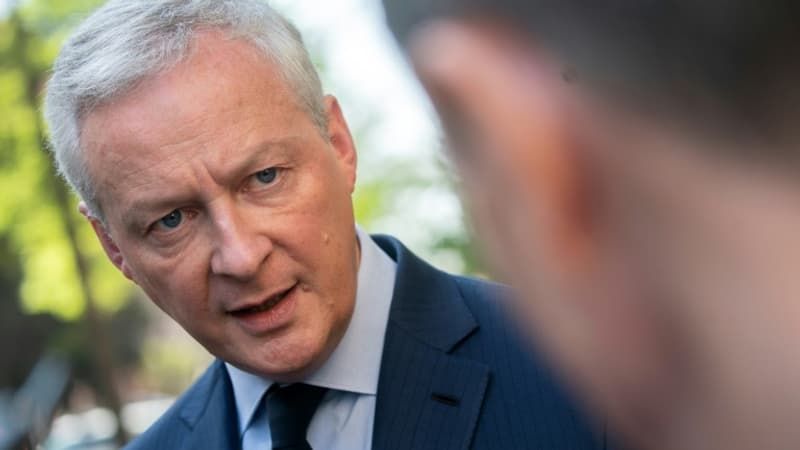Inflation is falling everywhere… except for food. While the overall price increase in May was the lowest in a year, it still exceeded 14% a year on food, after 15% in April. To break this double-digit inflation, the government is counting on the big manufacturers, summoned to urgently reopen trade negotiations with the big retailers.
Except that the arguments skid and Bruno Le Maire gets angry. If nothing moves in the next few days, the Minister of the Economy and Olivia Grégoire, in charge of Commerce, say they are ready and determined to activate the fiscal lever. According to information from BFM Business, it is an exceptional tax on billing that is in process. It would be implemented in the 2024 finance bill.
Bercy raises the tone
Bercy has already tried the soft way. After a meeting at the ministry on May 17 with the two ministers, the 75 largest agri-food groups pledged to reopen negotiations at the end of May, beginning of June. But the ultimatum is coming to an end and the renegotiations have not really started. Bercy therefore threatens to tighten the screw.
Of the 75 large agri-food groups in the crosshairs, this tax would apply to those who have committed to reopen negotiations and to those who have not. Affected manufacturers are those whose sales prices have increased by more than 10% since March 1 and whose cost of at least one raw material has decreased by more than 20%.
So far, these industrialists have seen nothing more than a burst of political pressure behind Bruno Le Maire’s tax threat. But the minister’s services assure that the threat is very serious, and that they could very easily introduce this tax, simply because they have already done so in other sectors.
Precedents in energy, digital…
Very recently, for example, the super profits of energy companies have been specifically taxed, or even the refining activities of TotalEnergies in France.
Bercy also recalls that since 2019 France has taxed large digital companies, with a 3% tax on the turnover made in the country by some forty companies, and that this year it should report close to 700 million euros.
Latest example: in 2017, in Bruno Le Maire’s first budget, France had implemented an exceptional surcharge on corporate tax for the 320 French companies that had a turnover of more than 1,000 million euros. The objective was to balance the budget after the cancellation by the Constitutional Council of the 3% tax on dividends.
In short, “a tailor-made tax, we know how to do it”, they tell us from Bercy’s side. But Bruno Le Maire still hopes that it will not come to that and he has the word of the big industrialists to reopen negotiations in the coming days.
Source: BFM TV


